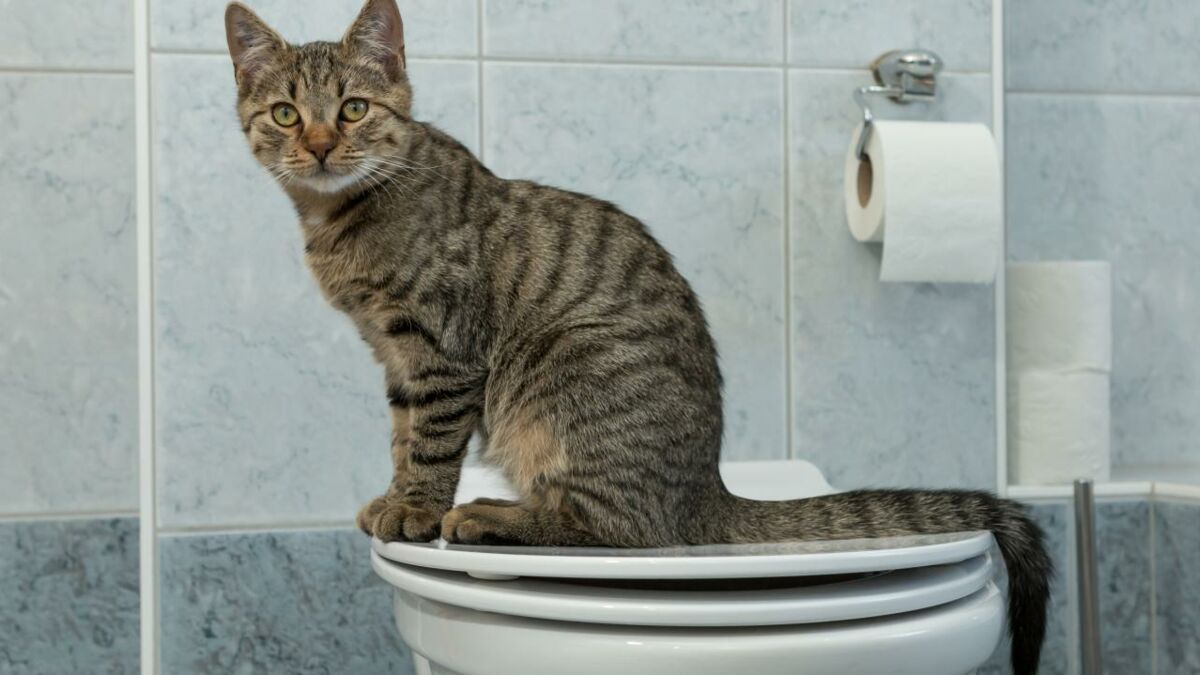Why You Mustn't Flush Cat Poop Down Your Toilet - Preserve Your Plumbing Health
Why You Mustn't Flush Cat Poop Down Your Toilet - Preserve Your Plumbing Health
Blog Article
Were you on the lookout for information about How to Dispose of Cat Poop and Litter Without Plastic Bags?

Introduction
As pet cat owners, it's important to bear in mind just how we get rid of our feline good friends' waste. While it may seem practical to flush cat poop down the commode, this practice can have destructive consequences for both the atmosphere and human health and wellness.
Environmental Impact
Flushing cat poop presents hazardous pathogens and parasites right into the supply of water, posing a considerable threat to water ecological communities. These contaminants can negatively influence marine life and compromise water quality.
Health and wellness Risks
Along with ecological worries, purging pet cat waste can likewise pose health and wellness threats to people. Cat feces may include Toxoplasma gondii, a parasite that can cause toxoplasmosis-- a potentially serious health problem, especially for expecting women and individuals with damaged immune systems.
Alternatives to Flushing
Fortunately, there are safer and extra accountable means to take care of pet cat poop. Think about the adhering to options:
1. Scoop and Dispose in Trash
One of the most typical method of getting rid of cat poop is to scoop it right into a naturally degradable bag and toss it in the trash. Be sure to utilize a devoted clutter inside story and get rid of the waste immediately.
2. Use Biodegradable Litter
Choose biodegradable pet cat litter made from materials such as corn or wheat. These trashes are environmentally friendly and can be safely taken care of in the garbage.
3. Bury in the Yard
If you have a lawn, consider burying feline waste in a marked area far from veggie yards and water sources. Make sure to dig deep sufficient to avoid contamination of groundwater.
4. Mount a Pet Waste Disposal System
Buy a pet waste disposal system especially designed for feline waste. These systems utilize enzymes to break down the waste, lowering smell and environmental effect.
Conclusion
Liable pet dog possession expands past giving food and shelter-- it likewise involves proper waste monitoring. By avoiding flushing feline poop down the toilet and going with alternative disposal techniques, we can reduce our ecological impact and protect human health and wellness.
Why You Should Never Flush Cat Poop Down the Toilet
A rose by any other name might smell as sweet, but not all poop is created equal. Toilets, and our sewage systems, are designed for human excrement, not animal waste. It might seem like it couldn’t hurt to toss cat feces into the loo, but it’s not a good idea to flush cat poop in the toilet.
First and foremost, assuming your cat uses a litter box, any waste is going to have litter on it. And even the smallest amount of litter can wreak havoc on plumbing.
Over time, small amounts build up, filling up your septic system. Most litter sold today is clumping; it is made from a type of clay that hardens when it gets wet. Ever tried to scrape old clumps from the bottom of a litter box? You know just how cement-hard it can get!
Now imagine just a small clump of that stuck in your pipes. A simple de-clogger like Drano isn’t going to cut it. And that means it’s going to cost you big time to fix it.
Parasitic Contamination
Believe it or not, your healthy kitty may be harboring a nasty parasite. Only cats excrete Toxoplasma in their feces. Yet it rarely causes serious health issues in the cats that are infected. Most people will be fine too if infected. Only pregnant women and people with compromised immune systems are at risk. (If you’ve ever heard how women who are expecting are excused from litter cleaning duty, Toxoplasma is why.)
But other animals may have a problem if infected with the parasite. And human water treatment systems aren’t designed to handle it. As a result, the systems don’t remove the parasite before discharging wastewater into local waterways. Fish, shellfish, and other marine life — otters in particular — are susceptible to toxoplasma. If exposed, most will end up with brain damage and many will die.
Depending on the species of fish, they may end up on someone’s fish hook and, ultimately on someone’s dinner plate. If that someone has a chronic illness, they’re at risk.
Skip the Toilet Training
We know there are folks out there who like to toilet train their cats. And we give them props, it takes a lot of work. But thanks to the toxoplasma, it’s not a good idea.

As a fervent person who reads on Can You Flush Cat Poop Down The Toilet?, I assumed sharing that piece of content was appropriate. Feel free to set aside a second to distribute this article if you appreciated it. Thanks a lot for taking the time to read it.
Click Here Report this page